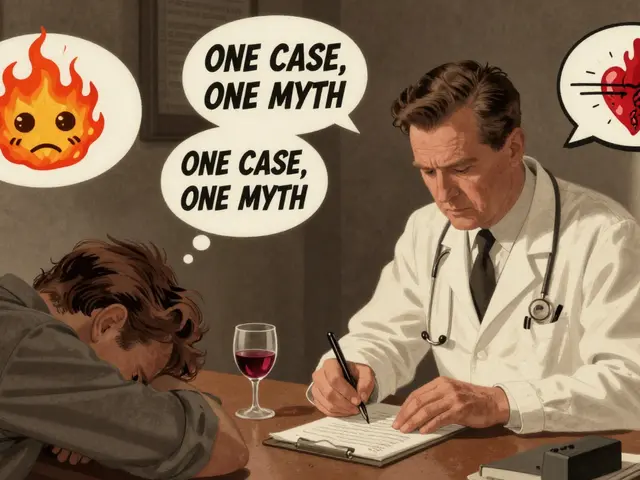Parkinson's disease: what to watch for and what to do next
Noticing a new tremor, slower steps, or a stiff shoulder? Those can be early signs of Parkinson's disease. Don’t panic — many causes can mimic Parkinson’s. Still, acting early helps. This short guide tells you how to recognize key signs, what tests to expect, basic treatment options, and practical tips to stay safer with Parkinson’s medications.
Recognizing Parkinson's disease
Look for these common symptoms: a resting tremor (shaking when your hand is relaxed), slower movements (bradykinesia), muscle stiffness, and balance problems. People also report a quieter voice, smaller handwriting, constipation, and sleep changes. If two or more of these show up and get worse over months, see a neurologist — preferably one who treats movement disorders.
Doctors usually diagnose Parkinson’s from history and exam. Sometimes they use imaging like a DaTscan to confirm dopamine loss or to rule out other causes. Expect questions about medications, family history, and how symptoms affect daily tasks.
Treatment options and daily management
Medications are the first line. Levodopa (with carbidopa) remains the most effective for motor symptoms. Other drugs include dopamine agonists, MAO-B inhibitors, and COMT inhibitors. Each has pros and cons — side effects like sleepiness, hallucinations, or motor fluctuations can occur. If medicines don’t control symptoms, deep brain stimulation (DBS) or focused therapies may help.
Exercise matters more than you might think. Daily walking, balance work, strength training, and activities like boxing or tai chi help mobility and mood. Speech therapy (for voice and swallowing) and occupational therapy (for dressing, feeding, home safety) make daily life easier.
Medication safety tips you can use right away:
- Keep a simple med list with doses and times. Carry it to all appointments.
- Use a pill box and alarms so doses stay regular — timing is critical for levodopa.
- Don’t stop Parkinson’s meds suddenly. Call your doctor first — abrupt stops can be dangerous.
- Watch for interactions: some common antidepressants or cold medicines affect Parkinson’s drugs. Ask a pharmacist if unsure.
- If you buy meds online, use trusted pharmacies and check for proper prescription requirements. Our site has articles on safe online pharmacies and ways to save on prescriptions.
Practical day-to-day fixes: install grab bars, remove loose rugs, use non-slip shoes, and keep a reachable phone. For swallowing problems, try softer foods and small bites; a speech therapist can give exercises. For constipation, increase fluids, fiber, and safe activity.
If symptoms change suddenly — severe stiffness, fever, or hallucinations — seek urgent care. For long-term planning, ask your neurologist about advanced therapies, local support groups, and what to expect in the next years. Small steps, clear meds routines, and the right team make a big difference for life with Parkinson’s.

Parkinson’s Disease: Motor Symptoms, Medications, and Daily Living
Parkinson’s disease affects movement, speech, and daily independence. Learn how motor symptoms like tremor and bradykinesia progress, how medications like levodopa help-and their limits-and what daily strategies can improve quality of life.
View More
Exelon Rivastigmine: Benefits, Dosage, and Real-World Tips for Dementia Care
Take a deep dive into Exelon (rivastigmine), a popular medication for Alzheimer's and Parkinson's-related dementia. Get to know how Exelon works, side effects, the dosages, and real tips for caregivers. Learn key facts, compare with other treatments, and see what research says. This long-read gives practical info for those considering or using Exelon for memory struggles.
View More




